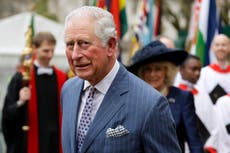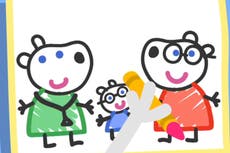Becoming a parent linked to becoming more conservative, study suggests
People without children tend to have more socially liberal views despite ageing

People who have children have a tendency to become more socially conservative compared to people who don’t, a study has found.
It is often thought that people’s views become more right-wing as they get older, but researchers have found that this may not be the case.
The study sought to understand how divisive attitudes on issues including abortion, immigration and sex arise.
Researchers from the University of Pennsylvania initially theorised that people who are “more invested in parental care” may lean more towards conservative policies and values.
As part of the study, they surveyed 2,610 people from across 10 countries and found evidence that people who are already parents or who want to become parents “are associated with increased social conservatism around the globe”.
However, people who do not have children consistently held more liberal views as they got older.
Professor Nicholas Kerry, co-author of the study, told Newsweek that the findings contradict the common belief that people tend to become more conservative with age.
“This belief is captured by the expression that, ‘Whoever is not a liberal at 20 has no heart, and whoever is not a conservative at 30 has no brain’,” he said.
“In fact, when you statistically control for the effects of parenthood, older people are no more socially conservative than younger people.”
The study, published in Proceedings of the Royal Society journal, also noted that with global fertility rates decreasing steadily since 1950, this could lead to a more liberal future.
“Given that birth rates are declining in most of the world – but increasing sharply in some regions – the current findings could have profound implications for the political landscape of the future,” the authors wrote.
“Specifically, our findings would suggest that global increases in childlessness could potentially contribute to a process of liberalisation on social issues.”
However, Professor Paul Higgins of University College London warned that the study’s shortcoming is that it reduces political leanings to a very specific set of personal experiences.
He told The Guardian that the study does not take the changes of later life into account or consider the effects of changes in society and social roles.
Prof Kerry added that despite the findings, it should be understood that political attitudes are “at least partly” the result of a person at a particular stage in life.
Understanding this can help people “understand that their own views might change sometimes too” due to having different priorities, and “not just because we have some special insight into the objective truth”, he said.
Join our commenting forum
Join thought-provoking conversations, follow other Independent readers and see their replies
Comments





Bookmark popover
Removed from bookmarks